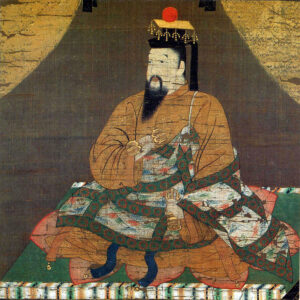国境を超えた絆──日本とポーランドの孤児たちの忘れられた物語
In the early 1920s, more than 760 Polish orphans were rescued from Siberia and brought to Japan, where they received medical care, clothing, and affection. This photograph captures a group of those children, many with shaved heads due to skin disease treatment, standing with Japanese nurses who gently rest their hands on the children’s shoulders. It is a rare glimpse of how a bond of trust and warmth began to form between strangers who became family across borders.

Group photo of Polish orphans with shaved heads, taken in the 1920s, standing beside Japanese nurses who rest their hands on the children’s shoulders, symbolizing care and emerging trust.
1. Introduction: Why Poland Remembers Japan
Poland is often described as one of the most pro-Japanese nations in Europe. This friendship is not an accident, nor is it based merely on cultural admiration or recent diplomacy. It is rooted in lived experience, in acts of humanity that crossed borders in times of deep suffering.
Few outside of Poland and Japan know this story. Yet it explains why, even decades later, Polish people speak of Japan with warmth and respect. In 1996, for example, one year after the Great Hanshin Earthquake devastated western Japan, Poland invited thirty Japanese children who had lost their parents in the disaster to spend three weeks in Poland. They were welcomed not as strangers, but as family. Behind this act of generosity was a memory: a time, more than seventy years earlier, when Japan had rescued hundreds of Polish orphans stranded in Siberia after World War I.
For Poland, to remember Japan is to remember compassion—an extraordinary bond forged not through treaties or trade, but through kindness to children in need.
2. The Tragedy of Siberian Orphans 1919–1922
At the end of World War I, Poland regained independence after more than a century of foreign domination. Yet thousands of Polish families had been exiled to Siberia under Tsarist rule, and when revolution and civil war erupted in Russia, they were left stranded in the frozen east. Hunger, disease, and despair swept through these communities.
The worst victims were the children. Parents, once patriots who had dreamed of a free Poland, perished in the harsh climate. Their sons and daughters, scattered across Siberia, faced starvation and abandonment. To the rescue committees formed by Polish exiles, one conviction burned brighter than all else: “If nothing else, let us at least save the children, so they may one day return to the homeland.”
By 1919–1920, an estimated ten thousand Polish civilians, many of them children, were trapped in Siberia. Appeals were sent to Europe and America, but almost every government turned away. To support Poland’s orphans was to antagonize Russia—something few nations were willing to risk. And so, the children of Siberia were left with nowhere to turn.
It was then that hope came from the unlikeliest of places: Japan.
3. Japan’s Unexpected Rescue
When every other nation turned away, Japan listened. In 1920, the head of the Polish Relief Committee, Helena Bielkiewicz, traveled to Tokyo after a desperate appeal in Vladivostok. She carried with her the stories of starving children, their parents dead or vanished, their future hanging by a thread.
For Japan, Poland was a nation barely recognized—no embassy, no official exchange of diplomats. By the logic of realpolitik, there was no obligation to help. Yet within just seventeen days of Bielkiewicz’s plea, the Japanese Red Cross, supported by the Imperial Army stationed in Siberia, resolved to act.
Trains were arranged. Ships were prepared. And in July 1920, the first group of 56 Polish orphans set foot on Japanese soil at the port of Tsuruga. They arrived frightened and emaciated, their clothes burned and disinfected, their bodies clothed in fresh yukata. When Japanese hosts filled their sleeves with candy and sweets, the children wept—not because of hunger alone, but because for the first time in years, they felt cared for.
Over the next two years, more than 760 Polish children would be rescued by Japan. In hospitals and homes across the country, they received medical treatment, new clothes, toys, and above all, human warmth. Nurses risked their lives to tend to typhus patients, and one even died in the effort. Ordinary Japanese families donated food, money, and affection. For these children, Japan became a place not of exile, but of healing.
4. Bonds Forged in Gratitude: From Orphans to Resistance
For the Polish children rescued by Japan, the story did not end with survival. It began a lifelong bond of gratitude that shaped not only their own lives but also Poland’s struggle for freedom decades later.
One of those orphans was Jerzy Stachowski. Returned to his homeland as a teenager, he never forgot Japan’s kindness. By 1928, he founded the “Far Eastern Youth Association,” a network of former Siberian orphans who had once found refuge in Japan. What began as a small circle of survivors grew into a nationwide organization with branches in nine cities and more than 600 members at its height in the 1930s.
When Nazi Germany invaded Poland in 1939, Jerzy and his comrades chose resistance. Many of them—former orphans who had once been fed, clothed, and comforted by Japanese families—now stood against tyranny. Their underground networks sheltered children, organized supplies, and resisted occupation. At its peak, their movement numbered more than ten thousand, carrying forward the spirit of resilience they had learned in childhood.
Japan’s role did not end in the 1920s. During the war, the Japanese Embassy in Warsaw intervened more than once to protect Jerzy’s orphanage from Nazi raids. On one occasion, when German soldiers stormed the building, a Japanese diplomat stepped forward and declared, “This orphanage is under the protection of the Japanese Empire.” At his urging, the children sang Japanese songs like Kimigayo and patriotic marches. The astonished German soldiers withdrew, leaving the orphans unharmed.
These acts reveal something profound: compassion sown in one generation bore fruit in the next. Japan’s kindness during the Siberian orphan crisis helped shape a Polish resistance that valued dignity, memory, and loyalty. The bond between Japan and Poland was no longer only about the past. It had become a living force in the struggle for justice.
5. Memory, Gratitude, and the Future
When the Great Hanshin Earthquake struck Japan in 1995, Poland remembered. Barely a year later, thirty Japanese children who had lost their parents were invited to Poland for three weeks of rest and healing. They were embraced in towns and villages, welcomed not as victims but as honored guests. For Poland, this was not charity. It was reciprocity—an echo of the kindness that Japan had shown to Polish orphans seventy-five years earlier.
At their farewell gathering, four elderly women appeared, walking slowly with canes. They had once been Siberian orphans themselves, rescued by Japan after World War I. With tears streaming down their faces, they pressed roses into the hands of each Japanese child. “We cannot forget,” they said. “When we were children, Japan saved us. Now it is our turn.”
Such moments remind us that history is not only about wars and treaties. It is about memory, gratitude, and the choices nations make to honor one another’s humanity. The friendship between Poland and Japan was not born of convenience or alliance, but of compassion across borders.
In an age when global politics often reduces nations to rivalries and interests, the story of the orphans asks us a deeper question: What kind of memory will we carry forward? Will we, like Poland, remember gratitude and build bonds of dignity? Or will we let hardship harden us into bitterness and forgetfulness?
The bond between Poland and Japan shows what is possible. From Siberian frost to the ruins of Kobe, from forgotten orphans to the embrace of nations, it is a story of light carried through darkness—a reminder that kindness, once given, never dies.
6. Conclusion: Which Heart Will We Choose?
The story of Poland and Japan is more than a tale of humanitarian aid. It is a mirror that asks us who we are, and who we want to be.
On one side, we see the heart that forgets kindness—the heart that repays compassion with betrayal, as some nations have done in times of war and hardship. On the other, we see the heart that remembers—the heart of Poland, which held onto gratitude across generations, turning memory into friendship.
For Japan today, the question remains: which heart will we choose? Will we allow ourselves to be hardened by bitterness and division, or will we carry forward the memory of compassion, building bonds that last beyond borders and centuries?
The orphans of Siberia and Kobe have already answered. Their tears, their songs, and their gratitude remind us that kindness, once given, becomes eternal. The choice is now ours.
Reflection
This story may appear to be a small episode in history, yet it pierces deeply into the human heart. At its core lies a choice between two paths: the heart that remembers gratitude, and the heart that betrays it.
Japan once saved the Siberian orphans, and seventy-five years later Poland returned that kindness by welcoming Japan’s earthquake orphans. What we see here is not diplomacy or calculation of interests, but a resonance of souls across nations and generations.
History always confronts us with the same question: Which heart will we choose to live by?
The story of Japan and Poland is not only history—it is, in truth, an epic that continues to ask this question of us today.


